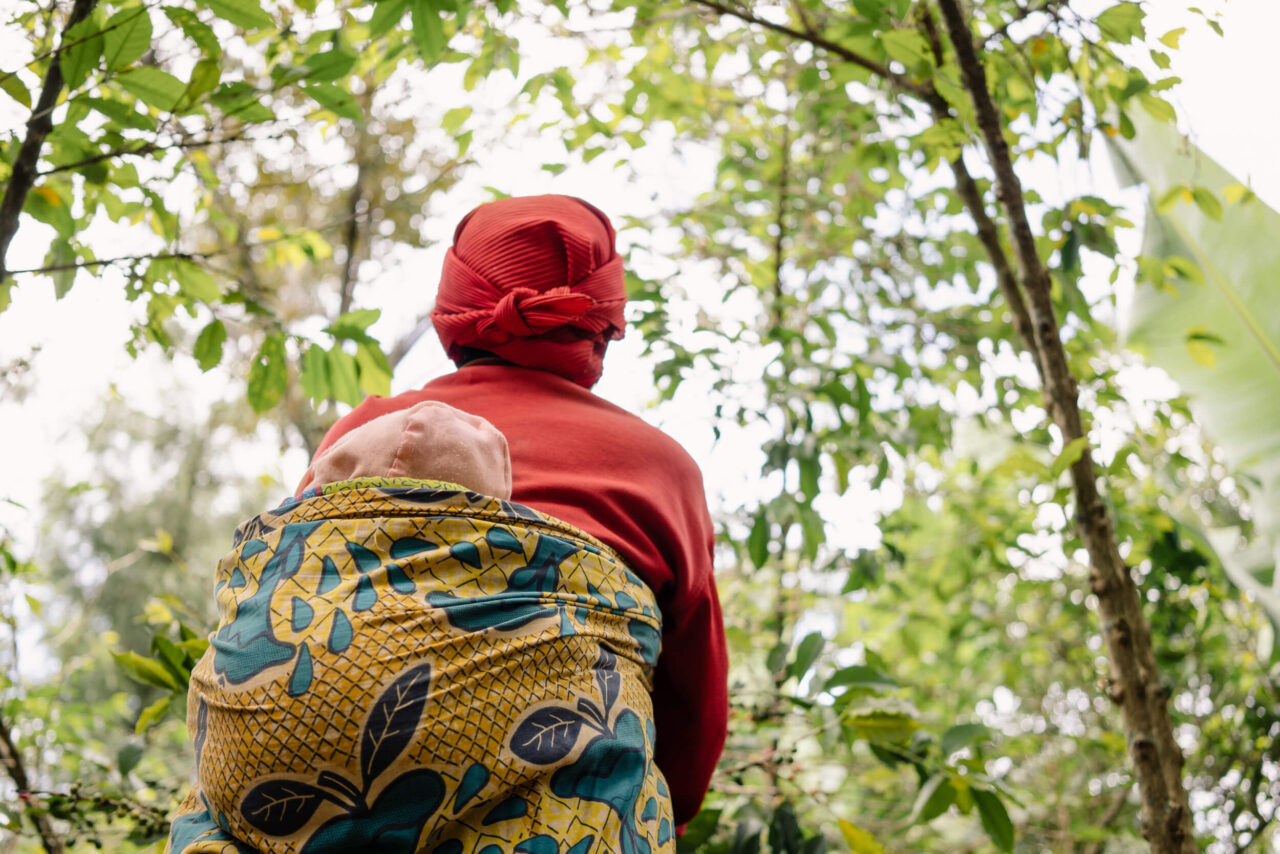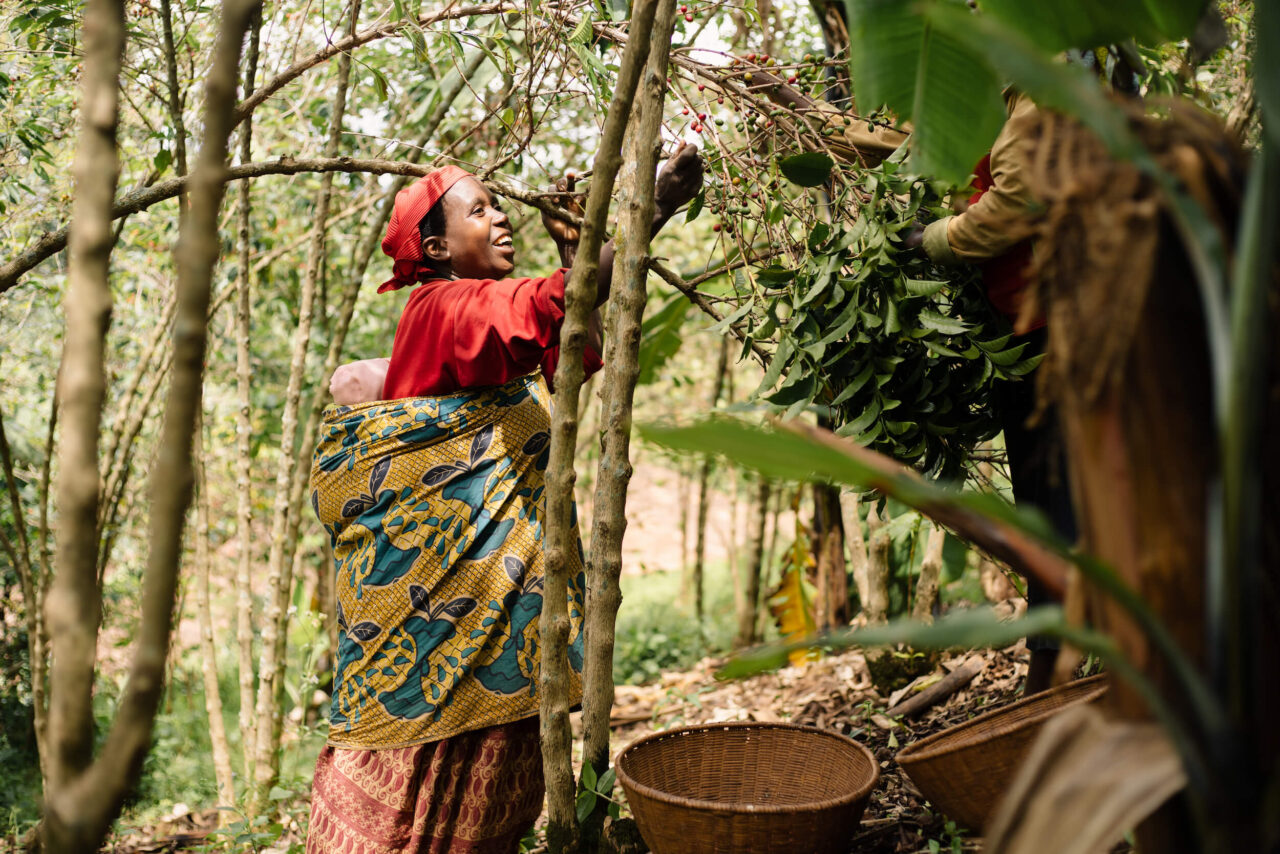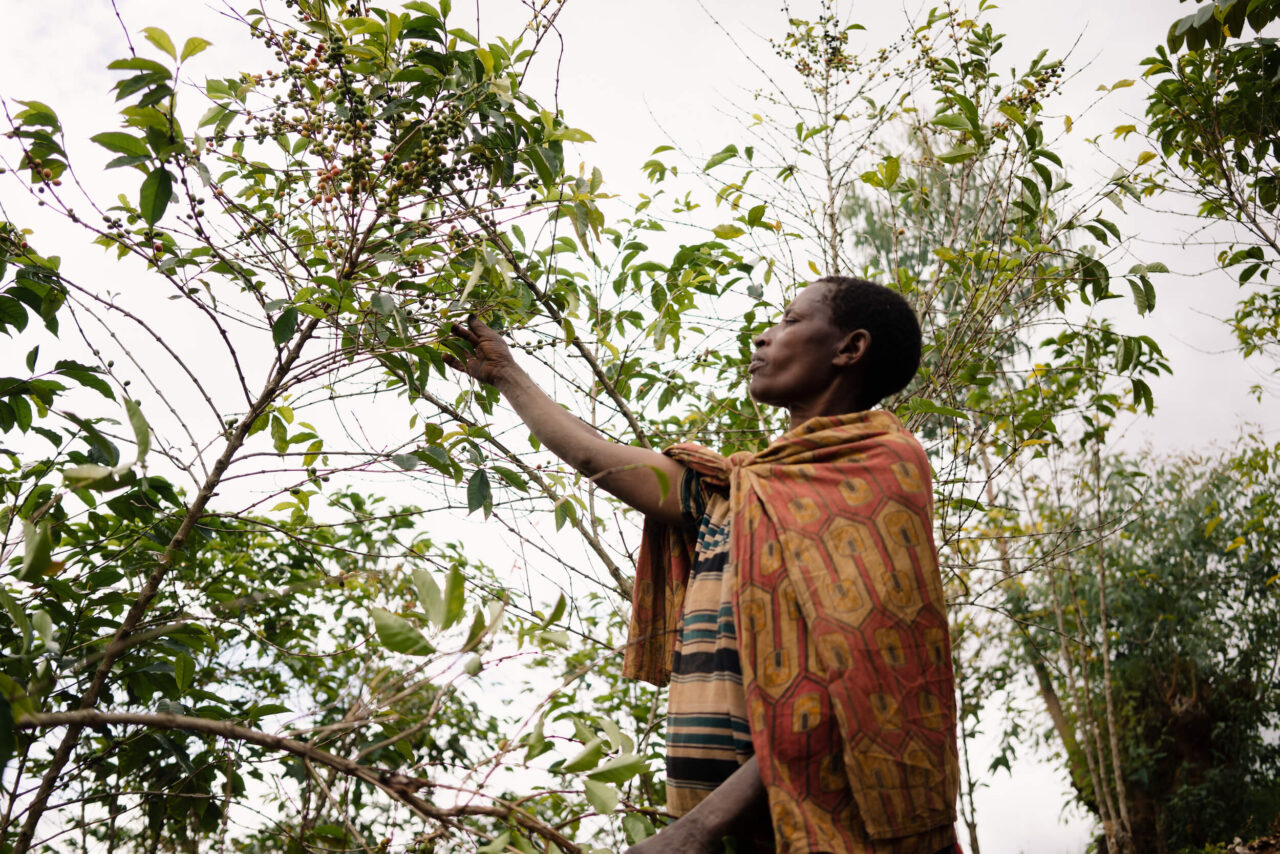There are women farming coffee on Gikungere hill who are tearing down the walls that were once built up around them.
“GROWING UP, WE WERE TOLD THAT EVERY BOY MUST ONE DAY HAVE A PIECE OF LAND TO PLANT COFFEE FOR HIS FUTURE FAMILY. BUT NOT US GIRLS. WE WOULD SOON BE MARRIED, A PART OF ANOTHER FAMILY.”

It was around noon when we met with the members of Dushigikirigiterwa C’ikawa (translated from Kirundi as “Let’s support the coffee crop”) women’s association. If they hadn’t been spending their afternoon with us, then they would have been out working in their families’ fields.
There are a couple of planting seasons in Burundi, each one aligning with the wet months. February and March mark the start of the country’s second planting season. Every day during these months you’ll find most farmers weeding, mulching, and preparing the soil to plant potatoes, climbing peas, and string beans.
We sat together, sharing thoughts on what it means to be a woman in coffee. We heard women speak their own truths on the value that they bring to their families; the value that they bring to each of their communities. We also talked about the change that they still want to see for women on Gikungere hill.

“If you compare now to the time when we were growing up, so many things have changed for us. Girls are going to school. There are women in government. A woman can now talk freely in meetings where men are present. There are not many separations of tasks. Before, building a house was considered to be ‘a man’s job’. Now, a woman can help her husband to build their family’s house. She can build a fence. We both have hands. We can both do the work. Our skills only improve by working together.”
But in coffee they say they still want to see change.
“WE’RE STILL TREATED LIKE CHILDREN. WE DON’T GET A SAY IN HOW THE MONEY WE EARN FROM COFFEE IS SPENT. WE WANT TO BE RECOGNIZED AS ADULTS; AS COFFEE PRODUCERS.”

Together these incredible women are learning how to support each other and earn money on their own terms, in their own way. They’re currently saving money to buy a piece of land together, with the hope of planting coffee trees. With this money, they say, comes freedom. The ability to contribute towards their families instead of always asking their husbands for money.
“WE USED TO HEAR ABOUT WOMEN’S DAY ON THE RADIO, BUT DIDN’T KNOW WHY WE WERE CELEBRATING IT. NOW, WE’RE CELEBRATING WHAT WOMEN HAVE ACCOMPLISHED.”

Sitting among these women was a powerful reminder of what a united community looks like. With the build of Ninga Washing Station happening so close to Gikungere hill, we’re looking forward to having more conversations like this one.

